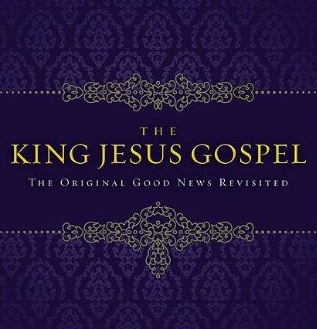Scot McKnight is professor of religious studies at North Park University. He is a leading authority on the New Testament, early Christianity, and the historical Jesus. McKnight has written over 20 books including The Jesus Creed: Loving God, Loving Others (read how this book has influenced me), Fasting (read my review), The Real Mary: Why Evangelicals Can Embrace the Mother of Jesus (read my review), and One.Life: Jesus Calls, We Follow (read my review). McKnight’s award-winning blog, Jesus Creed, has been rated by Technorati.com as the #1 site for Emerging Church and has been the inspiration for several of my blog posts (including a sermon, and several posts: on leadership, on reading the whole bible, and on reaching 20-somethings).
Book Basics
 There are so many books by Evangelicals about Jesus and/or the gospel that another seems unnecessary – unless the other is The King Jesus Gospel. McKnight argues that the Evangelical view of gospel is incomplete, and suggests that Evangelicals should more accurately be characterized as Soterians (saved ones) based on the centrality of personal salvation in their understanding of gospel.
There are so many books by Evangelicals about Jesus and/or the gospel that another seems unnecessary – unless the other is The King Jesus Gospel. McKnight argues that the Evangelical view of gospel is incomplete, and suggests that Evangelicals should more accurately be characterized as Soterians (saved ones) based on the centrality of personal salvation in their understanding of gospel.
McKnight does far more than critique the Evangelical perspective, he constructs a well-reasoned argument for a biblical understanding of gospel then invites those who follow the way of Jesus today to gospel that gospel. The gospel is one, not many. I Corinthians 15:1-5, 20-28 serves as the beginning point or the “authentic apostolic gospel,” which “Paul received and passed on” (p.49). This story (the Story of Jesus Christ) does not occur in isolation but connects to the larger biblical story (The Story of Israel) of the First (Old) Testament. This more robust gospel is the gospel proclaimed in the four gospel accounts, the gospel found in the preaching in the book of Acts, and the gospel that Jesus preached. It is also the gospel found in the writings of the early church fathers and is contained in the Nicene and Apostles’ creeds.
This book is a must read for those who seek to follow the way of Jesus, regardless of tradition: Evangelical, mainline, Emergent, Catholic, etc. A biblical understanding of gospel can never be attained if one limits one’s resources to only the New Testament, nor if one approaches the biblical text as a whole from one of the popular current “hidden worldviews” (e.g., postmodern tribalism). The beginning point must be an attempt to locate gospel in its earliest form, which is made accessible in The King Jesus Gospel.
So What?
It is rare to encounter an Evangelical who proposes that the way forward is by embracing the creeds and the church calendar. It is rarer still to find an academic religious scholar situated within a tradition who openly critiques a central aspect of that tradition’s identity without alienating him or herself from key leaders within that tradition. McKnight is able to achieve both of these and more with another book designed to challenge assumptions and change behavior.
Two of McKnight’s books achieve this lofty goal. The Jesus Creed challenges and expands the idea of daily discipleship and leads to lives of love. The King Jesus Gospel challenges and expands the idea of gospel and leads away from decision toward discipleship.
- How do you define the word “gospel”?
- What individual within your own tradition have you found to be the most effective voice for reform in recent years?
Scot McKnight. The King Jesus Gospel: The Original Good News Revisited (Zodervan, 2011). ISBN: 9780310492986.
